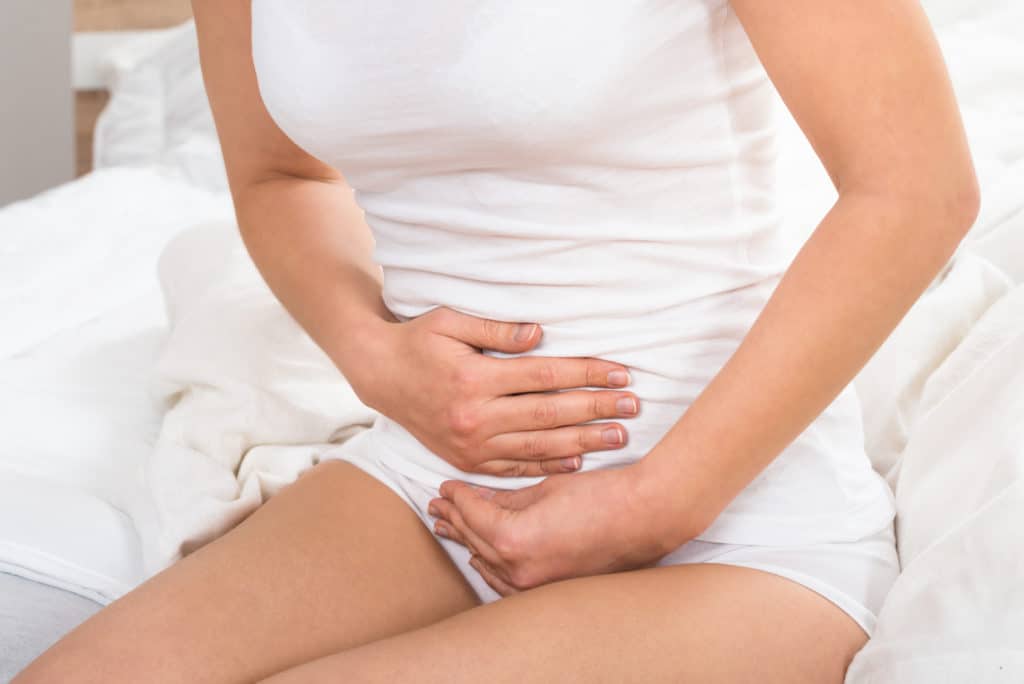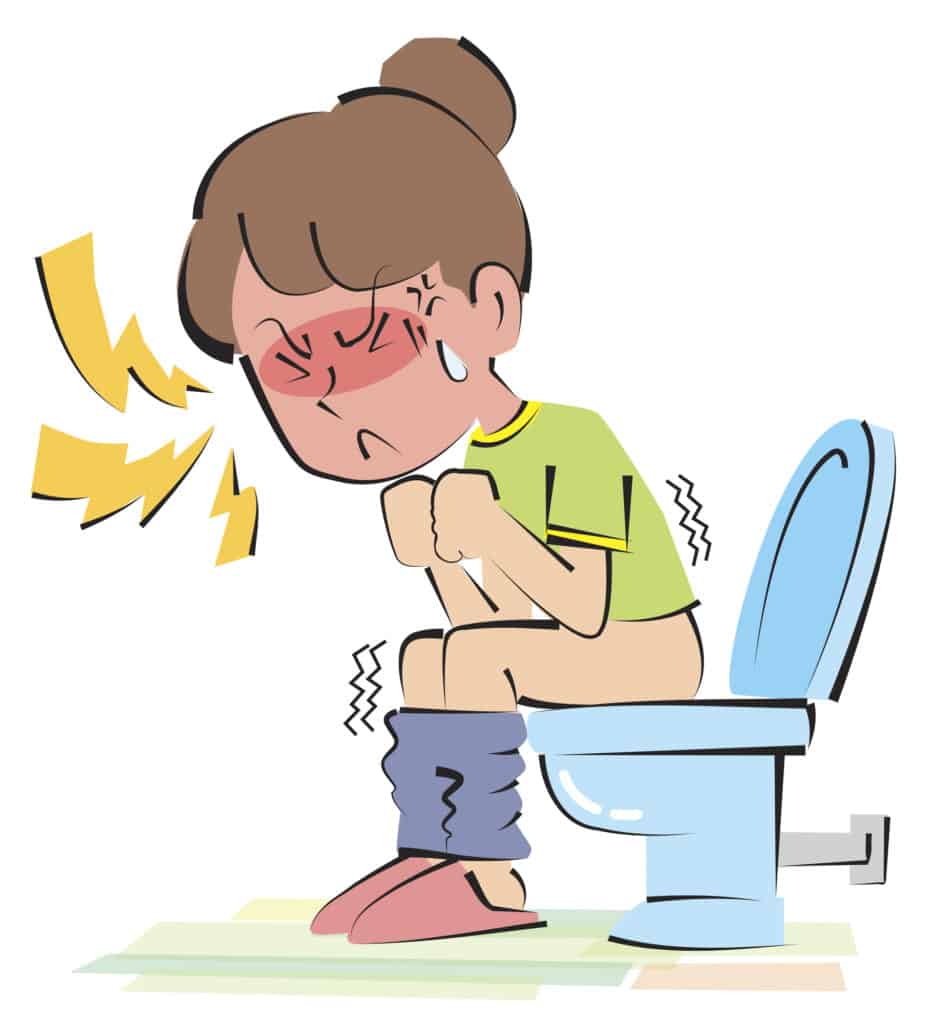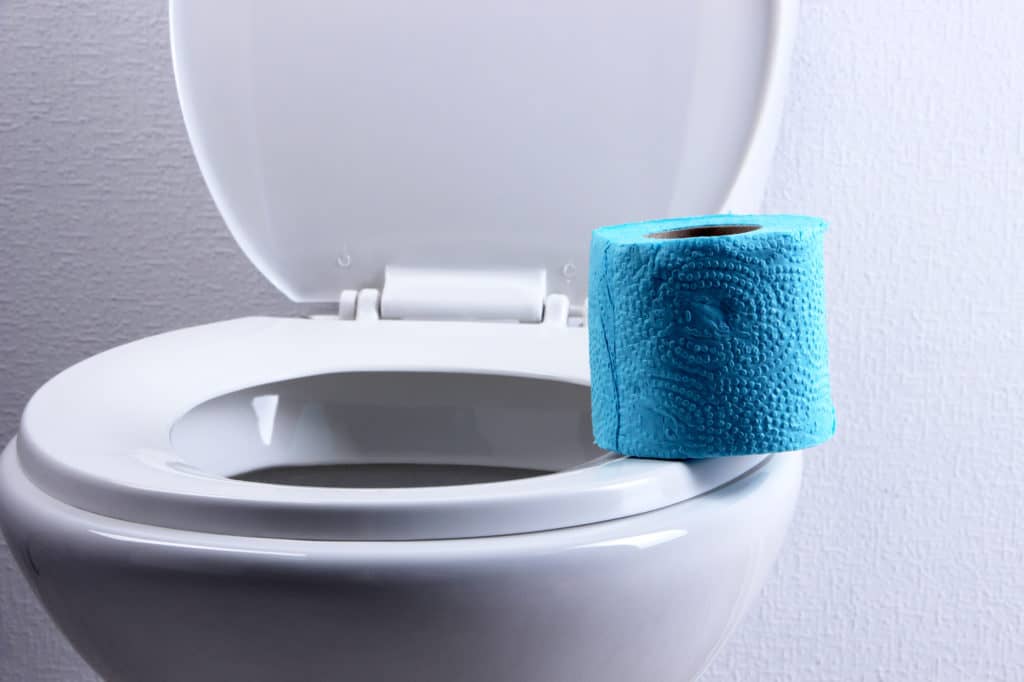Constipation and pregnancy. Is there a link?
If you’re pregnant and searching for answers on why you’ve suddenly gone from healthy bowels – that Doctor Mehmet Oz would be proud of and an incredibly “regular schedule” – to one that is, painfully, almost non-existent, please don’t panic.
Don’t worry.
It’s 100% normal.
There’s a good reason for the slow-down, too – and it lies in your pregnancy-specific biochemistry and delicate hormonal balance.
Hormones are to blame for everything, though, right?
Mood swings, anxiety, depressed mood, acne, breast tenderness, weight gain, fatigue, hirsutism (male pattern hair growth in areas where you don’t want thick, dark hair), fatigue, joint and muscle pain, insomnia, bloating…
As if PMS wasn’t bad enough, Mother Nature is now throwing a whole new can of worms at you – in the form of pregnancy hormones. Crying much?
We’re led to believe that our hormones are the root cause of all our negative symptoms, and it’s true, they can be – if things are out of whack.
But when hormones are balanced and working well, progesterone, for instance, makes us feel calm and relaxed. Estrogen keeps our skin and the inside of our vaginas plump, moisturized, and youthful.
A healthy amount of testosterone (made in the ovaries) prevents weight gain, keeps bones healthy, our motivation and drive firing on all cylinders, and our sexual desire and libido high. And prolactin triggers your body to start producing milk to feed your infant. They’re clever molecules – that we’d be lost without.
It is reported that “72% of pregnant women experience constipation and other bowel problems”. And there are 4 million babies born in the US every year. That’s a lot of women who “can’t go,” – so you’re most definitely not alone with your constipation and pregnancy.
It might surprise you to hear those figures because it’s still taboo, as is anything to do with bowel movements. But we shouldn’t be embarrassed. It happens to us all.
As women, we should talk about these subjects – like chronic constipation, painful sex, and urinary stress incontinence – more freely and openly. Then other women – and future generations of young women – don’t experience the same anxieties or fear that something is wrong with them.
Anyway, let’s get back down to business – constipation and pregnancy.
If you’re going to the toilet and moving your bowels less often than usual. You have abdominal cramping and pass unusually hard stools that cause pain and sometimes result in bright red blood on the toilet paper, from the tiny tears or “fissures” in the lining of your anus or burst hemorrhoids (piles). You are most likely suffering from constipation.
So, What Causes Constipation During Pregnancy?
Constipation is commonplace in pregnancy, but the cause isn’t always the same. Here are the most common reasons for constipation in pregnancy that we see in women who visit our clinic:
- Iron Supplementation
Like constipation, iron deficiency and anemia are also common in pregnancy, which is why lots of pregnant women take iron supplements. Iron supplements are renowned for causing constipation and other digestive disturbances.
If you’ve been prescribed iron, this could be the cause of your constipation. However, don’t stop taking the supplements without talking to your OB/GYN.
Ferrous Sulphate supplements can be tough on your digestive tract, but many other different types of iron supplements are thought to be gentler on the stomach and digestive tract. Consider taking an iron chelate like Ferrous Bisglycinate instead.
- Pelvic Floor Dysfunction
Weakened pelvic floor muscles can happen because of pregnancy – due to the extra weight and pressure from your growing uterus. Yet, it may also be a pre-existing condition that you had before pregnancy but didn’t know. It’s not serious, and we can correct it with Physical Therapy and therapeutic exercises, but it may be the cause of your constipation.
In our experience, there are many reasons why your pelvic floor muscles can be the root cause of constipation during pregnancy – including overly tight muscles that are unable to relax and allow stools to pass.
The exact reason is different for everyone, but from a more general point of view, good pelvic floor strength is directly associated with good bladder and bowel control.
- Progesterone
Before conception, progesterone is made by the “Corpus Luteum” – the collection of cells that forms in your follicle when an egg is released.
If pregnancy does not occur, it shrinks and is reabsorbed – your progesterone levels drop, and your menstrual cycle continues. If fertilization occurs, the Corpus Luteum remains (for the first ten weeks), and progesterone levels begin to climb. During pregnancy, progesterone is produced in the adrenal glands and your placenta.
Progesterone is essential for conception, but it’s also vital for the pregnancy to continue as it improves the uterus lining – making it a comfortable condo for your growing baby.
But aside from these all-important factors, progesterone is the relaxation molecule – relaxing everything from your bones to your ligaments to allow your body to house a small bowling bowl for nine months.
It can also relax your bowels, which is why it is implicated in pregnancy-related constipation.
Constipation And Pregnancy: How To Treat Constipation in Pregnancy
Don’t get drawn into taking bucketloads of artificial fiber supplements to deal with your constipation and pregnancy.
This misguided advice is not the answer. In most cases, it makes the problem worse.
But first and foremost, make sure your diet and lifestyle are right.
Make sure you’re eating plenty of fiber to keep your bowels healthy and “moving.” Stay hydrated, too – as dehydration can make stools harder and more challenging to pass.
All these things not only help with constipation and pregnancy, but they also provide your baby with the vitamins, minerals, and nutrients they need – and give you much-needed energy.
Also, when you’re pregnant – especially heavily pregnant – it’s tempting to put your feet up and wait for the baby to arrive, so we tend to move less than usual.
Try and resist this temptation and stay active – even if it’s just going for a walk around the block. The movement will keep your bowels moving and go some way to preventing constipation.
Walking also helps strengthen your all-important pelvic floor muscles that are essential for good bowel and bladder control and your baby to pass easily through the vaginal canal during childbirth. If you’re able, consider trying Prenatal Pilates or Yoga classes, swimming, or gentle hikes. This will help with your constipation and pregnancy.
Importantly, you should try and avoid straining when you’re trying to go. This bad habit only makes the problem worse by tightening the anus and causing the dreaded hemorrhoids (piles).
Not just on the toilet, either try and relax and reduce the stress in your life. If you’re tense all the time, the surface of your intestines and the connective tissue that lines your bowel and your anus will all be tight too, and your body will struggle to pass stools effectively.
Start saying ‘no’ more often and focus on relaxation and self-care. Take time out to try meditation or restorative yoga or book yourself in for a relaxing prenatal spa treatment.
But when all is said and done, if you’ve been plagued by constipation and other digestive issues like IBS throughout your pregnancy, we recommend you consult with a Physical Therapist for the most effective relief from pregnancy-related constipation.
We can quickly reduce your gas and bloating and find the root cause of your constipation, so you can get back to enjoying your pregnancy and this most important and special time of your life. Don’t just put up with it. You’ll have more energy to spend time with your friends and family – instead of staying in bed “resting.”
You’ll feel well throughout your pregnancy – glowing and radiant, instead of feeling overly heavy and uncomfortable. We’ll also teach you how to poop properly. Yes, really. It’s a skill. But best of all, you’ll strengthen your pelvic floor muscles, which will serve you (your sex drive, bladder control, and self-esteem) well through pregnancy, postpartum, and beyond.
Constipation and Pregnancy: Ready To Go?
We offer all new patients a completely free consultation – either over the telephone or at the Nancy Brandberg PT clinic in Falls Church. There is no obligation to book treatment after the call. That decision is entirely up to you.
If you do wish to make an appointment, you can book yours now – here. And don’t worry – there is no need to be embarrassed about your constipation and pregnancy.
Constipation is one of the most common issues we deal with in the clinic – and we specialize in all forms of women’s health, from pelvic organ prolapse to urinary stress incontinence and painful sex.
You’re in very safe hands.
Constipation is common in pregnancy, but as with all changes in bowel habits that are unusual for you and persist for more than a few weeks, it’s essential to talk to your physician to rule out more serious causes. Please contact your doctor if you have any of the following symptoms that persist for more than a week:
- Constipation accompanied by nausea or vomiting
- Severe pain in your abdomen
- Dark red or black blood, pus, or mucus in your stools
- Diarrhea lasting more than 24 hours
- Confusion, dizziness, or other neurological disturbance
Struggling to define your symptoms, or just want to ask for some advice? Get in touch with me through my contact page.






